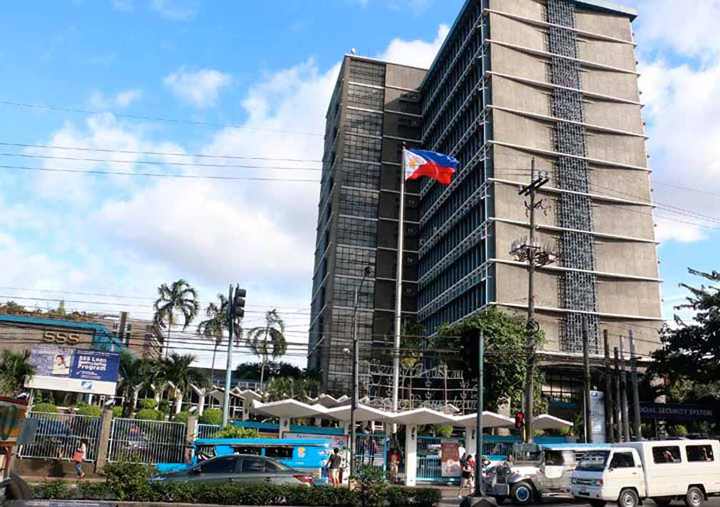
THE House Committee on Banks and Financial Intermediaries will follow the International Monetary Fund’s (IMF) recommendation to amend the Philippine bank secrecy law and grant the Bangko Sentral ng Pilipinas (BSP) supervisory powers to examine deposits by the stockholder, owner, director, trustee, officer or employee of an entity under Central Bank-supervised financial institutions.
The committee on Thursday started deliberating on House Bill 8634 filed by its chairman Quirino Rep. Junie Cua, amending Republic Act 1405 or the Secrecy of Bank Deposits Law.
During the hearing, BSP Senior Assistant Governor and General Counsel Elmore O. Capule said the Philippines is the only country which prevents its central bank from looking into deposits, after Lebanon already passed a law lifting its bank secrecy against its central bank for one year.
He said Lebanon is also looking to totally repeal its bank secrecy law against its banking regulator.
“The bankers hold on people’s money, you are the trustee, you are accountable, so we are looking at a very, very narrow lifting of the bank secrecy law. We are not lifting the whole law, just lifting it to allow the BSP, as a banking regulator, to look into deposits of bankers to ensure that they are complying with their duties,” Capule said.
For the last three years, Capule said there were around 1,419 incidents relating to deposit crimes and losses.
“Around 2,200 personnel of banks [were] involved and it amounts to P6.3 billion from 2017 to 2020. So we are looking at alarm that there are insider abuses being done in the banks, and we don’t have the proper legal weapon to ensure that the these kinds of abuses are not used, utilizing bank deposit secrecy as a shield,” he added.
Moreover, Cua said his bill provides that BSP, in the exercise of its supervisory powers, as one of the exceptions to the prohibition to examine, may inquire or look into deposits, provided that there is reasonable ground to believe that a fraud, serious irregularity or unlawful activity has been or is being committed by the stockholder, owner, director, trustee, officer or employee of an entity that is subject to the supervision or regulatory power of BSP, his representative or agent, or any individual in conspiracy with the aforementioned persons.
“The basic objective [of this proposal is] to empower the BSP to look into accounts of bank owners, stockholders, officials, or their dummies in order to be able to investigate their wrongdoings,” he said.
“I want this bill to be a response to IMF and World Bank—their recommendation seems to me is plausible [to protect depositors],” Cua added.
Cua said it is also necessary to look into the deposit to establish such fraud, irregularity or unlawful activity. He said it is also suggested that the authority of BSP to inquire or examine deposit shall apply in the course of its investigation of closed banks.
The bill, however, provides that the results of such inquiry and examination shall be for BSP’s exclusive use and shall not be made available to any person or entity, whether public or private, except to the Securities and Exchange Commission, the Philippine Deposit Insurance Corporation, the Anti-Money Laundering Council, the Department of Justice, and the courts.
The bill seeks to amend the 66-year-old Republic Act 1405 or the law prohibiting disclosure of or inquiry into deposits with any banking institution, which was enacted primarily to deter private hoarding, boost the economy, and enhance state protection of privacy rights.
RA 1405 was amended by Presidential Decree 1792, which expanded the exceptions to the absolute confidentiality rule, including instances when the special or general examination of a bank is made in the course of a specifically authorized by the Monetary Board after being satisfied that there is reasonable ground to believe that a bank fraud or serious irregularity has been or is being committed, and that it is necessary to look into the deposit to establish such fraud or irregularity. However, PD 1792 was later expressly repealed by RA 7653 or the New Central Bank Act.
“Existing secrecy of bank deposit laws of the Philippines are more constraining for prudential supervision than similar laws in other jurisdictions. The limitation impedes transparent governance and anti-corruption mechanisms,” Cua said in his explanatory note.
According to Cua, other jurisdictions with strong bank secrecy arrangements have provided their prudential authority with unrestricted access to all bank records.
“In well-known international financial centers like Switzerland, Singapore and Hong Kong, the prudential supervisors have the power to access all bank records, including depositor information. This power is, however, combined with clear and strong professional secrecy arrangements,” he added.
To address the unintended consequences of the secrecy of bank deposit laws, and heed the call of the global community for a more transparent financial system environment, Cua said RA 1405 should be amended, which will be limited only within the very narrow confines of banking supervision. This will effectively restore the authority of BSP to examine bank deposits under PD 1792.
Earlier, the IMF said BSP should be granted unimpaired access to information on all customer accounts, and the ability, without constraints, to employ and share depositor information for any prudential purpose in order to fulfill its supervisory mandate to address safety and soundness concerns.
It said bank secrecy law in the country restricts the BSP’s ability to undertake effective supervision.
